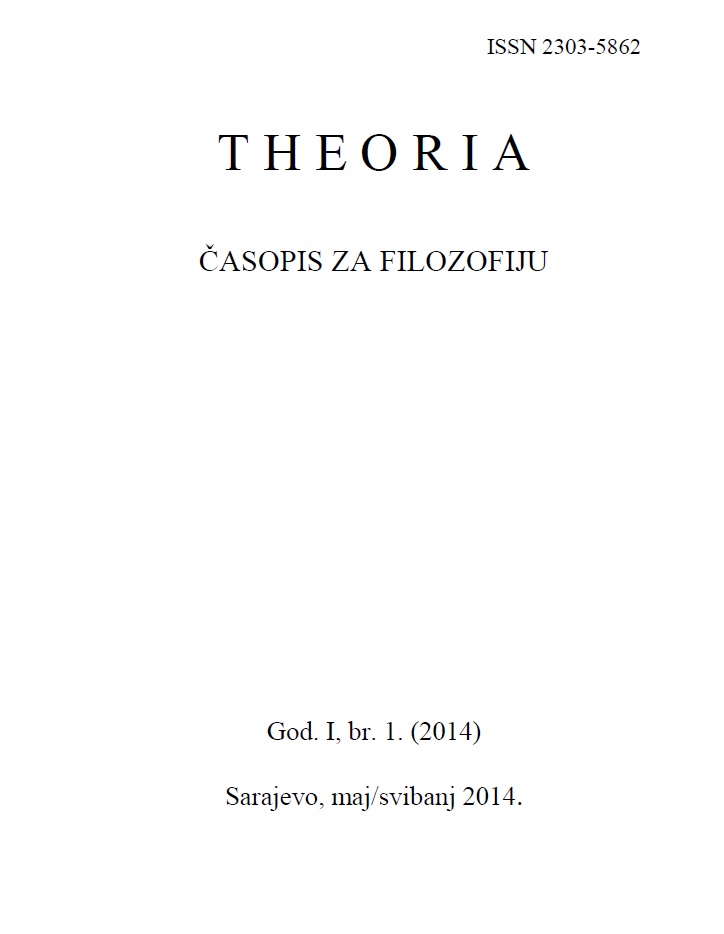Sokratova pjesnička krivnja
Socrates poetic guilt
Do philosophy and poetry live together?
Author(s): Željko ŠkuljevićSubject(s): Aesthetics, Ancient Philosphy, Hermeneutics
Published by: Filozofsko društvo THEORIA
Keywords: philosophy; poetry; language as medium; Socrates; methodical doubt; poets; hermeneutics; philosophers; messengers; Gadamer; guilt; innocence; Ancient Greek; spiritual aspiration; essence;
Summary/Abstract: Do philosophy and poetry live together? From long ago, “fertile tension between poetry and philosophy“ rules, distance and closeness at once, some sort of silent follower of their being. Why and in which way language, the only medium of what is meant and what is spoken, can achieve what is common and what is different. Did Socrates write or no, in spite of short and insufficient indications about that, still remains secret. All we know he existed and spoke, regardless that we know his “verbality“ as written argument. However, a few random indications, notes, etc, may direct us to ask ourselves what is known about him, to subject that to methodical doubt. If the poets are the hermeneutics of the gods (Ion, 534e), then, these others are hermeneutics of the reality. The philosophers are, therefore, messengers of an different understanding and of one particular insight into everything that is. Regardless of Socrates's "poetic guilt" or innocence, we conclude together with Gadamer: “one who thinks that art can't be more appropriately thought by the Greek concepts doesn't think Greek enough – and doesn't think well enough.“ Considering philosophy as a spiritual aspiration to the essence, we can already say it assumed poetry as composing the essence of everything that is in the historical world.
Journal: Theoria časopis za filozofiju
- Issue Year: I/2014
- Issue No: 1
- Page Range: 16-26
- Page Count: 11
- Language: Bosnian

